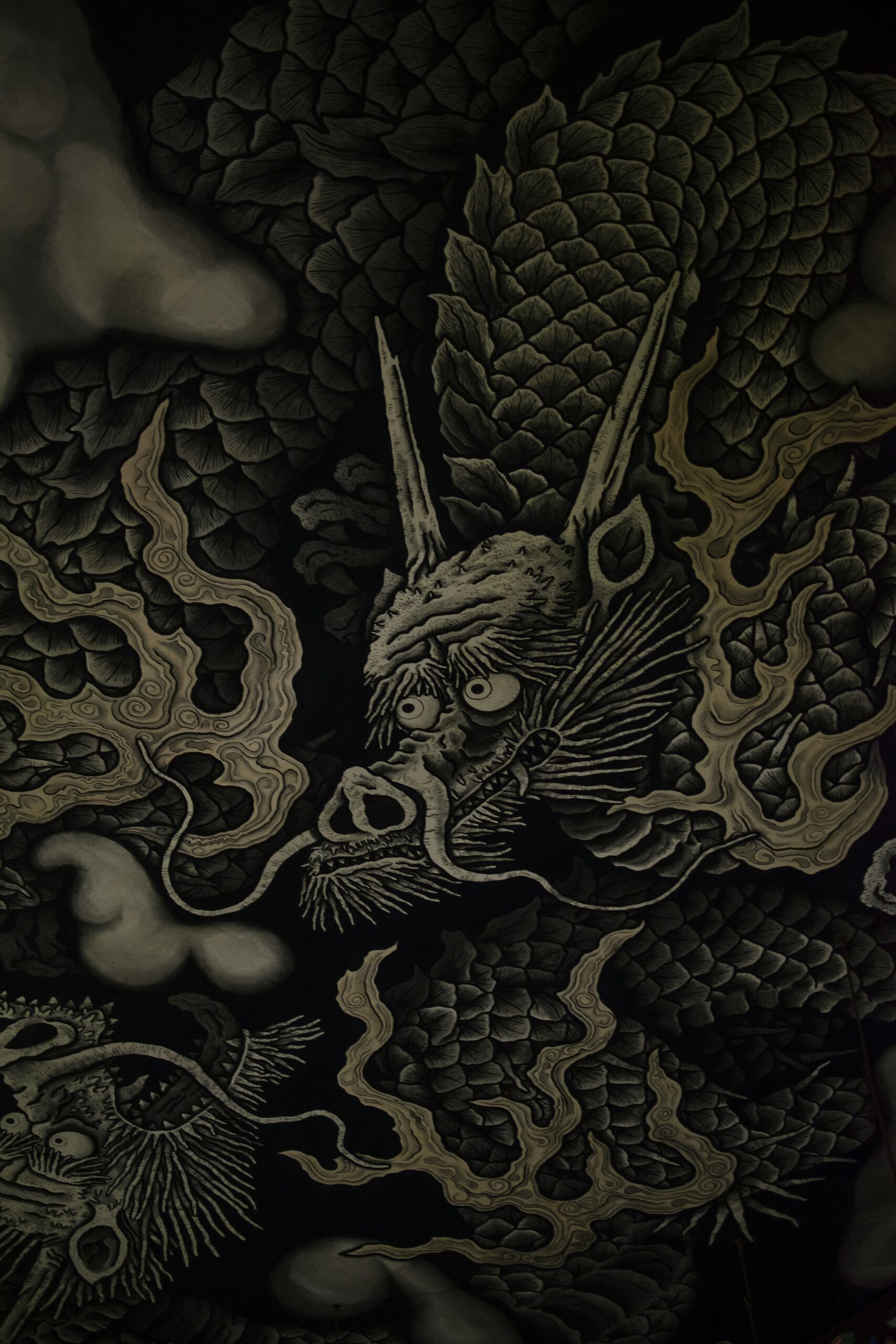In the heart of modernity, where skyscrapers touch the clouds and technology advances at a breakneck speed, lies a nation deeply rooted in tradition and mysticism. Japan, a country known for its rich cultural heritage, also harbors a world filled with superstitions that have been passed down through generations. These beliefs, ranging from whimsical to eerie, paint a vivid picture of a society that beautifully intertwines the past with the present. "Unveiling Mysteries: Japanese Superstitions Explored" offers a journey into the shadowy depths of these age-old superstitions, shedding light on their origins, meanings, and impacts on contemporary Japanese life.
Unveiling the Shadows: Japan’s Superstitious Heart
Japan’s superstitious heart beats with a rhythm that echoes through its temples, shrines, and everyday life. These beliefs, often seen as peculiar by outsiders, are a testament to the country’s rich tapestry of folklore and mythology. From avoiding certain numbers to celebrating specific rituals for luck and prosperity, superstitions permeate various aspects of Japanese culture. This mystical undercurrent shapes not only individual behaviors but also societal norms, illustrating how deeply ingrained these beliefs are in the collective consciousness of the nation.
The Origins of Fear: Tracing Superstitious Roots
The roots of Japanese superstitions are as deep and tangled as the ancient forests that dot the landscape. Many of these beliefs stem from Shinto, Japan’s indigenous spirituality, and Buddhism, which was introduced from China and Korea. These religions, coupled with local folklore, have contributed to a unique blend of spiritual and superstitious practices. Natural phenomena, spirits, and ancestors are given great respect and often feared, leading to the development of rituals and beliefs designed to appease or ward off these powerful forces.
Black Cats and Broken Mirrors: Universal Myths?
While some Japanese superstitions are unique, others share uncanny similarities with beliefs found around the world. Black cats, for instance, are often associated with bad luck in Western cultures, but in Japan, they are believed to bring good luck, especially in terms of romance. Broken mirrors, on the other hand, do not carry the same seven years of bad luck as in the West, but are still considered ominous, potentially fracturing the soul. These parallels invite a fascinating comparison of how different cultures interpret similar phenomena through a superstitious lens.
Night Whispers: The Tale of Yokai and Onryo
Yokai and onryo are staples of Japanese folklore, embodying the darker, more mysterious aspects of the country’s superstitions. Yokai are supernatural creatures that range from mischievous to malevolent, while onryo are vengeful spirits who return to the physical world to seek retribution. These entities populate countless stories and serve as cautionary tales, reminding individuals to respect the unseen world and to tread carefully in areas where spirits might dwell. They represent a bridge between the natural and supernatural, illustrating the thin veil that, according to Japanese beliefs, exists between this world and the next.
Salt and Purification: Rituals Against Evil Spirits
Salt holds a significant place in Japanese superstition as a purifier and protector against evil spirits. This mineral is commonly seen outside businesses and homes, sprinkled to ward off bad luck and to cleanse the space of malevolent forces. Sumo wrestlers also throw salt into the ring before a match to purify it. These practices underscore the importance of purity in Japanese culture and the belief that cleanliness, both physical and spiritual, is crucial to maintaining harmony and warding off misfortune.
The Red Thread of Fate: Love Beyond Sight
The concept of the red thread of fate is a romantic and spiritual superstition that suggests an invisible red thread connects those who are destined to meet, regardless of time, place, or circumstances. This thread may stretch or tangle, but it will never break, symbolizing a predestined bond that transcends physical constraints. This belief underscores the Japanese notion that some relationships are preordained by fate and are as enduring and unbreakable as the thread that binds them.
Number 4: Whispering Death in Silence
In Japan, the number four is notoriously avoided due to its pronunciation "shi," which shares the sound with the word for death. Hospitals often skip this number when labeling floors or rooms, highlighting the deep-seated fear and respect for superstitions that involve life and death. This aversion is a clear example of how superstition can influence practical decisions and architectural design, reflecting the pervasive nature of these beliefs in everyday life.
Umbrellas Indoors: Inviting the Unseen
Opening an umbrella indoors is considered bad luck in Japan, a belief that mirrors similar superstitions found in other cultures. This practice is thought to invite misfortune or even spirits into the home, disrupting the harmony and safety of the indoor space. Such a superstition serves as a reminder of the importance placed on maintaining a clear boundary between the outside world and the sanctity of the home, a principle that extends beyond physical cleanliness to spiritual protection.
Reflections of the Past: Mirrors and the Soul
Mirrors in Japanese superstition are not just reflective surfaces but gateways to the soul. They are treated with reverence and care, as it is believed that mirrors can trap or alter one’s spirit. This belief influences practices such as covering mirrors after a death in the household, to prevent the deceased’s soul from getting trapped. Mirrors play a crucial role in various ceremonies and rituals, embodying the connection between the visible world and the invisible realms of the spirit.
The Power of Words: Kotodama’s Magical Influence
Kotodama, or the spirit of words, is a belief in the innate power of speech to influence the physical and spiritual world. This concept emphasizes the weight of words and the importance of speaking with intention and respect. In Japanese culture, words are not merely a means of communication but are imbued with the power to bring about change, for better or for worse, reflecting the deep spiritual resonance that language holds within the fabric of society.
New Year, New Spirits: Oshogatsu Traditions
The New Year, or Oshogatsu, is a time of renewal and celebration, where numerous superstitions and rituals come into play to welcome good spirits and ward off bad luck. From the ringing of temple bells to banish evil spirits to the eating of special foods for health and prosperity, Oshogatsu encapsulates the hope for a bright and fortunate year ahead. These traditions highlight the cyclical nature of life and the enduring hope that animates the human spirit, bridging the past and the future.
Unraveling Mysteries: Modern Japan and Ancient Beliefs
Despite the march of modernity, ancient beliefs and superstitions continue to thrive in Japan, woven into the fabric of daily life and cultural practices. This coexistence of the old and the new is a testament to the enduring strength of tradition and the timeless nature of the human inclination towards the mystical. As Japan continues to navigate the future, these superstitions serve as a compass, guiding society with the wisdom of the past and the collective hopes for the future.
"Unveiling Mysteries: Japanese Superstitions Explored" has journeyed through the shadowy realms of folklore, rituals, and beliefs that define the superstitious landscape of Japan. From the depths of ancient mythology to the everyday practices of the modern world, these superstitions offer a unique window into the soul of Japanese culture. They remind us that, beneath the surface of the tangible, lies a world brimming with mysteries waiting to be explored. As we close this chapter, let us carry forward the understanding that superstitions, in all their enigmatic glory, are not just relics of the past but vibrant threads woven into the tapestry of human experience, connecting us across time and space.








